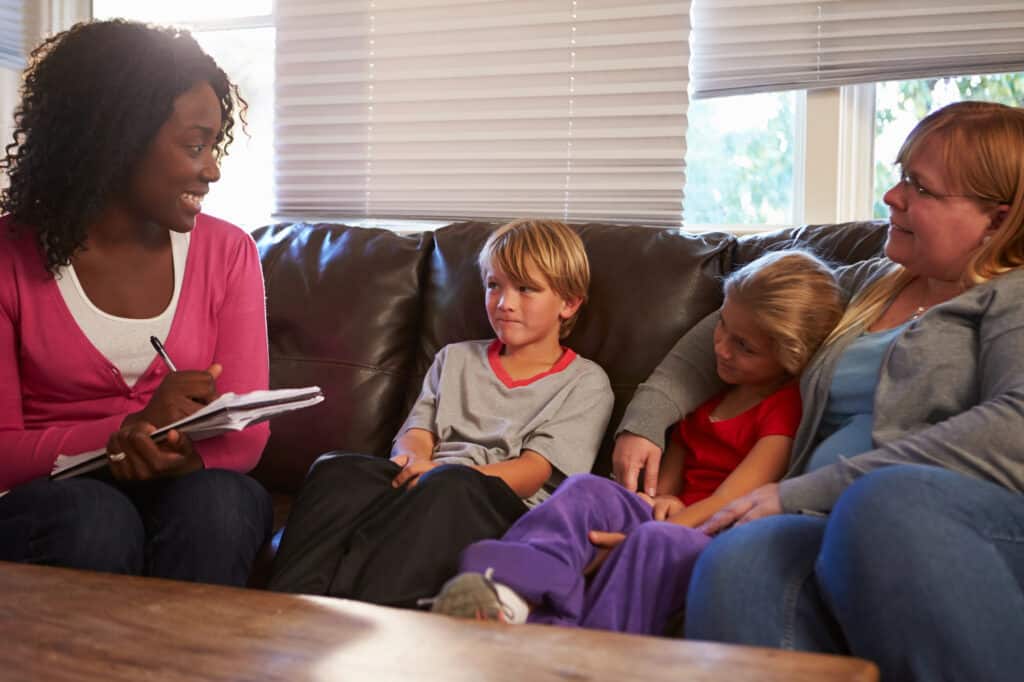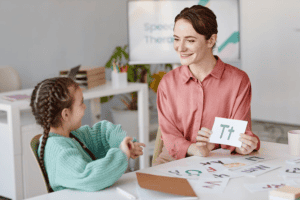Communication plays a pivotal role in every aspect of our lives, influencing how we interact, understand, and support one another. In the realm of behavior support, effective communication becomes even more crucial. The way we convey messages, listen, and respond can significantly impact the behavior of those we are trying to assist. In this blog, we delve into the intricate connection between communication and behavior support, exploring how communication strategies can be utilized to foster positive outcomes. From active listening techniques to nonverbal cues, we’ll uncover the tools and insights necessary to navigate challenging behaviors with empathy and understanding. Join us as we unravel the complexities of communication in behavior support and discover how mastering this art can lead to more meaningful connections and improved outcomes for individuals in need.
Empowering Through Communication: Strengthening Relationships for Behavior Support
Introduction:
Effective behavior support relies heavily on the quality of communication between individuals. Building strong relationships through communication is not only beneficial for fostering trust and understanding but also essential for providing the necessary support to manage behaviors effectively. In this blog post, we will explore how communication serves as a powerful tool in strengthening relationships and empowering individuals to navigate behavioral challenges with confidence and resilience.

- The Foundation of Trust:
Trust is the cornerstone of any meaningful relationship, especially in behavior support contexts. Clear and honest communication lays the foundation for trust to flourish. By communicating openly and transparently, individuals can develop trust in each other’s intentions and abilities, paving the way for effective collaboration in addressing behavioral needs.
- Active Listening:
Active listening is a fundamental aspect of effective communication. By truly listening to individuals’ concerns, feelings, and perspectives, behavior support providers can demonstrate empathy and validation, which are essential for building rapport and understanding. Through active listening, individuals feel heard and valued, fostering a sense of trust and connection in the relationship.
- Empathetic Communication:
Empathy plays a crucial role in behavior support, as it allows individuals to understand and resonate with each other’s experiences and emotions. Empathetic communication involves acknowledging and validating individuals’ feelings while offering support and encouragement. By demonstrating empathy, behavior support providers can create a safe and supportive environment where individuals feel understood and empowered to address their behavioral challenges.
- Clear Expectations and Boundaries:
Communication is instrumental in establishing clear expectations and boundaries, which are essential for maintaining a structured and consistent environment. By clearly articulating expectations and boundaries, behavior support providers can help individuals understand what is expected of them and the consequences of their actions. This clarity fosters a sense of security and predictability, promoting positive behavior and reducing instances of conflict and confusion.
- Collaborative Problem-Solving:
Behavior support is most effective when approached collaboratively, with all parties actively involved in problem-solving and decision-making processes. Effective communication enables individuals to express their thoughts, concerns, and preferences, facilitating collaborative problem-solving efforts. By working together, behavior support providers and individuals can identify strategies and interventions that address underlying needs and promote positive behavioral outcomes.
Building Bridges: Communication as a Catalyst for Understanding
Introduction:
Communication serves as a vital bridge that connects individuals, fostering understanding, empathy, and collaboration. In the realm of behavior support, effective communication plays a pivotal role in bridging the gap between different perspectives and experiences, ultimately facilitating mutual understanding and growth. In this blog post, we will explore how communication acts as a catalyst for understanding in behavior support contexts, enabling individuals to bridge differences, build connections, and navigate behavioral challenges with empathy and compassion.
- Breaking Down Barriers:
Communication breaks down barriers that divide individuals, whether they be linguistic, cultural, or cognitive. By engaging in open and inclusive communication practices, behavior support providers can create a welcoming environment where all voices are heard and respected. Breaking down these barriers fosters a sense of belonging and unity, laying the groundwork for genuine understanding and collaboration.
- Cultivating Empathy:
Empathy is the ability to understand and share the feelings of others, and effective communication is instrumental in cultivating empathy within relationships. Through active listening and perspective-taking, individuals can gain insight into each other’s experiences, emotions, and perspectives. This empathetic communication fosters a deeper understanding of the underlying factors contributing to behavioral challenges, paving the way for compassionate support and intervention.
- Bridging Perspectives:
Behavior support often involves navigating diverse perspectives, including those of individuals, families, caregivers, and professionals. Communication acts as a bridge that connects these perspectives, facilitating dialogue, collaboration, and shared decision-making. By acknowledging and valuing each other’s viewpoints, individuals can work together to develop holistic and individualized approaches to behavior support that honor the unique needs and strengths of each individual.
- Clarifying Misunderstandings:
Miscommunication and misunderstandings can hinder effective behavior support efforts. Clear and transparent communication is essential for clarifying misunderstandings and resolving conflicts that may arise. By fostering open dialogue and addressing concerns proactively, behavior support providers can prevent misunderstandings from escalating and work towards mutually beneficial solutions that promote understanding and cooperation.
- Building Trust and Rapport:
Trust is the foundation of any meaningful relationship, and communication is key to building trust and rapport in behavior support contexts. By demonstrating authenticity, honesty, and reliability in communication, behavior support providers can establish a sense of trustworthiness that encourages individuals to open up and engage in the support process. Building trust and rapport creates a supportive environment where individuals feel safe to express themselves and work towards positive behavioral outcomes.
The Power of Words: Communicating for Positive Behavior
Introduction:
Words hold immense power—they can inspire, uplift, and motivate individuals to achieve their best selves. In the realm of behavior support, effective communication can be a catalyst for positive change. By choosing our words thoughtfully and intentionally, we can create environments that nurture positive behavior and foster growth.
Key Points:
- Words of encouragement and praise can reinforce positive behavior, serving as a powerful motivator for individuals to continue their efforts.
Clear Expectations:
- Communicating clear expectations helps individuals understand what is expected of them, reducing ambiguity and confusion that can lead to negative behavior.
Empathy and Understanding:
- Empathetic communication acknowledges individuals’ feelings and perspectives, fostering a sense of understanding and support that promotes positive behavior.
Redirecting Negative Behavior:
- Words can be used to gently redirect negative behavior, offering guidance and alternatives in a non-confrontational manner.
Conclusion
Effective communication is a crucial component of behavior support, as it enables individuals to understand and express their needs, wants, and emotions. By fostering a culture of open and respectful communication, we can empower individuals to develop better coping skills, improve relationships, and achieve greater independence. At Positive Solutions Behavior Group LLC, our team of experienced professionals is dedicated to providing personalized behavior support services that promote positive communication and relationships.
If you or someone you know is struggling with behavioral challenges, we invite you to reach out to us at Positive Solutions Behavior Group LLC. Our office is conveniently located in Mason, OH, and we can be reached at 859-282-0400. Our team is committed to providing high-quality behavior support services that cater to the unique needs of each individual. Contact us today to learn more about our services and how we can help you achieve greater success in your personal and professional life.






